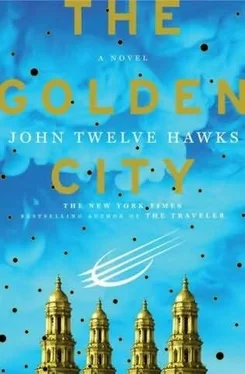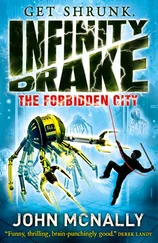When it felt like too many people were staring at him, he wandered north to the modest buildings of the Asakusa district. As the streetlights began to glow with a dark yellow light, he entered an onsen-a public bath that used the water from a hot spring. The small entryway had lockers for your shoes, and he found himself hopping on one leg as he untied his laces. A sliding door glided open and a short, burly Japanese man came out to get his shoes. The man’s pant legs rose up slightly when he squatted down to open his locker, and Hollis saw that he had tattoos. More tattoos were visible on the patch of chest exposed by his partially unbuttoned shirt. Hollis wondered if the man was Yakuza-a Japanese gangster. In a culture that valued conformity, you had to have a good reason to change your appearance.
After leaving his clothes in a locker, he followed a yellow line into a washroom and sat on a plastic stool. The Japanese men stared at the black foreigner as Hollis soaped himself, filled a bucket with hot water from a faucet and poured it over his head. After repeating the process a half-dozen times, he entered a larger room with four baths-each providing a different temperature. The first bath was so hot his feet and fingers began to tingle. The onsen water smelled like sulfur and was the color of weak tea. After awhile, the Japanese ignored the foreigner and concentrated on their own soaking. Am I safe here? Hollis wondered. No computers. Paid cash. Breathing in the steam, he lay back against the wall of the bath.
***
He left the onsen a few hours later and ate dinner at a restaurant where plates of sushi were served on a conveyer belt. After he had consumed the food on six colored plates, the bookseller’s phone played a few notes from Beethoven’s Ode to Joy .
“Do you know who this is?” Kotani asked. It sounded like he was still frightened.
“Yes. Thank you for contacting me.”
“I am sorry for my cowardly behavior this afternoon. But I was not prepared to meet you.”
“I understand.”
“Go to a bar called Chill at ten o’clock this evening. It is in the ‘Golden Gai’ near Kubukichõ…” The phone went dead as little plates of sushi continued to glide around the room.
***
Kubukichõ turned out to be a red light district for peep shows, strip clubs and massage parlors. A plastic sign with a gigantic pair of lips hung from one of the buildings. Women’s voices whispered from loudspeakers, and the sidewalk was littered with handbills for prostitutes. Hollis was surprised to find Jamaicans working as touts and bouncers for the different establishments. Wearing tropical suits in bright pastel colors, they strutted up and down the sidewalk, speaking Japanese to the businessmen that wandered through the area.
A Jamaican man with a shiny bald head stood outside a bar called the Le Passion Club. “Hey, Brother Dreadlocks-where you from?”
“The United States.”
“Is that so? Why you in Japan?”
“I’m going to study karate at a dojo.”
“Best pray to God, Dreadlocks.” The bald man laughed loudly. “Those karate masters gonna kick your black ass.”
“I can handle myself.”
“You take care, Brother Dreadlocks. Japan is a tough place for a black man. Just do your business and go on home.”
After getting lost a few times, he found the Golden Gai-a grid of narrow streets lined with shabby two-story buildings. Over twenty bars were crammed into the area. Electric cables were draped across the street as if everything were powered from a single socket. None of the bars had windows; only a few bothered to put up signs. Hollis walked up and down the streets for ten minutes before he noticed the word ‘Chill’ written in tiny letters on a green door.
He went inside and found a staircase so steep that it looked like a wooden ladder. Using hands and feet, he climbed up to the first floor, passed through some red velvet curtains, and found himself in bar that was about the size of his bedroom back in Los Angeles. American jazz played from hidden speakers while a bartender stood in front of shelves displaying different brands of vodka.
Akihido Kotani sat at a small table against the wall. He was staring at a vodka bottle that had been frozen in a block of ice and then placed inside a brass cylinder. The cylinder was held by a steel frame that could be tipped forward whenever you wanted to pour more alcohol.
The bartender glared at the black foreigner, but Hollis ignored him and sat down at Kotani’s table. “Good evening.”
“Ahhh, you found this place. Would you like a drink, Mr. Wilson? At this bar, the sake is served warm and the vodka is always cold.”
“Sake sounds good.”
Kotani ordered some sake from the bartender, and then turned the brass cylinder on its pivot to pour more vodka into his own glass.
“Sparrow came here in the old days when this bar was called ‘Nirvana.’ Every night from nine until three, they had incense burning and a Zen master meditating over there.” Kotani motioned to one side of the room, now occupied by a tropical fish tank. “Sparrow said that the monk created a peaceful atmosphere.”
“And you were his friend?”
“I met him before he took his Harlequin name. Even in school, he was the brave one and I was the coward.”
Kotani stopped talking when the bartender served Hollis a bottle of warmed sake and a ceramic cup. The stereo system started playing a cut from Miles Davis’s “Kind of Blue” album.
“Listen, I need to-”
“I know what you want. Sparrow said a Harlequin needs ‘a horse, a scroll, a purse and sword.’ It is not wise to carry a sword in Japan unless you’re going to a kendo demonstration. But I think I can supply a handgun.”
“From the Yakuza?”
Kotani shook his head. “The Yakuza killed Sparrow. They work on contract with the Tabula and other powerful people in this country. They will not help a Harlequin.”
“What about the Jamaicans who work for the nightclubs?”
“Those men are gaijin with passport problems. Ask for a gun and they sell you to the police. What you need is someone flexible about the law. Japanese born in Peru and Brazil have come home. They look and talk like everyone else, but they see the world in a different way. My landlord, Senzo, is one of these people. He knows a man with a handgun. You can buy it tonight for 200,000 yen. Do you have money?”
Hollis nodded. “Will they come to this place?”
“We will meet them at a love hotel over in Shibuya. It is private there. No one will see us.” Kotani extended his hand. “I need my phone, please.”
Kotani dialed a number on the mobile and said a few words in Japanese. “It is okay,” he said after he switched off the phone. “They will meet us in an hour.”
Hollis sipped the warm sake and Kotani poured himself more vodka from the frozen bottle. “So why are you in Tokyo?” he asked. “There are no more Travelers in Japan. All of them were killed after Sparrow died. Japan isn’t waiting for the Vast Machine-it is already here.”
“I’m looking for someone that can talk to the dead. When Thorn was in Japan he met a spirit reader, a woman.”
“Yes. An Itako. The one Thorn met lives in the north.”
“How do I find her?”
Kotani poured some more vodka. His face was flushed and he spoke slowly, trying to pronounce each word. “Sparrow and I went to see this Itako. She said that Sparrow would die because of cowardice and I would die because of bravery.”
“And was she right?”
“Not for me. But Sparrow was killed by a coward-a Yakuza who shot him in the back.”
“I want to meet her.”
The bookseller took a sales slip and a ballpoint pen out of his tweed sports jacket. He wrote Japanese characters on the back of the slip and pushed it across the table. “Her name is Mitsuki. Take the train up to Hachinohe and show this to the people there. You will need a translator. On Sunday afternoon, we will go to Yoyogi-Kõen. That is when the different tribes-the zoku -are in the park. One of my old high school students named Hoshi Hirano will be there, dancing to rock and roll music. He will help you travel north if your plan sounds exciting.” Kotani smiled and raised his glass. “Hoshi is a rebel who needs a cause.”
Читать дальше












